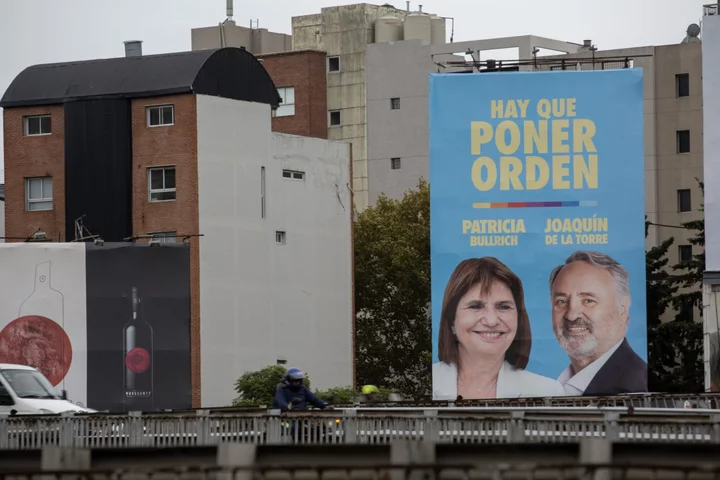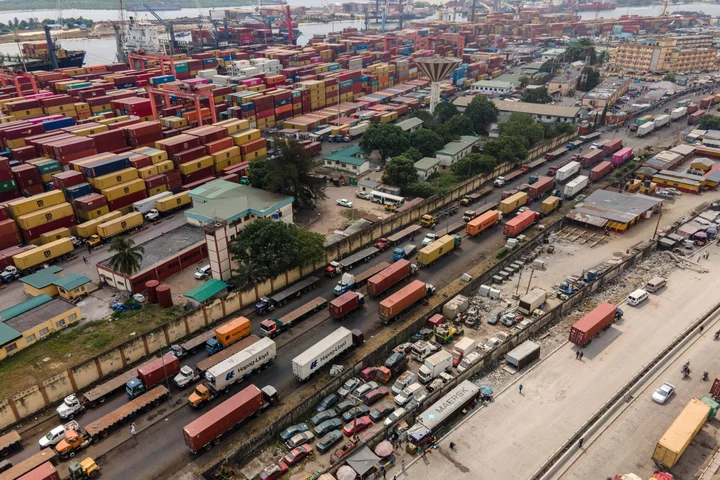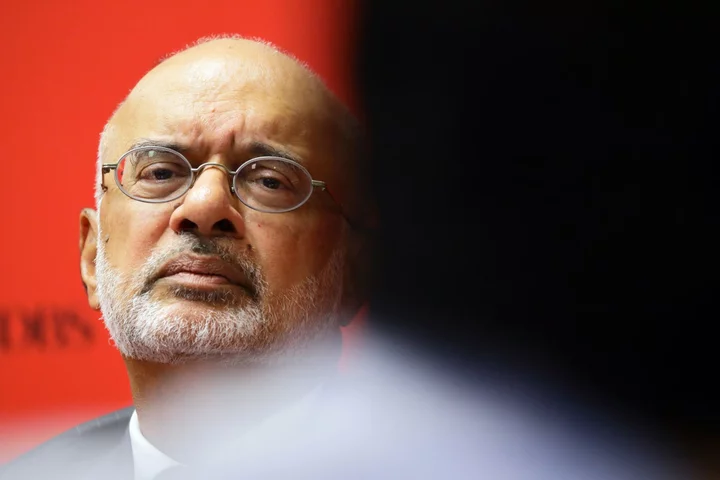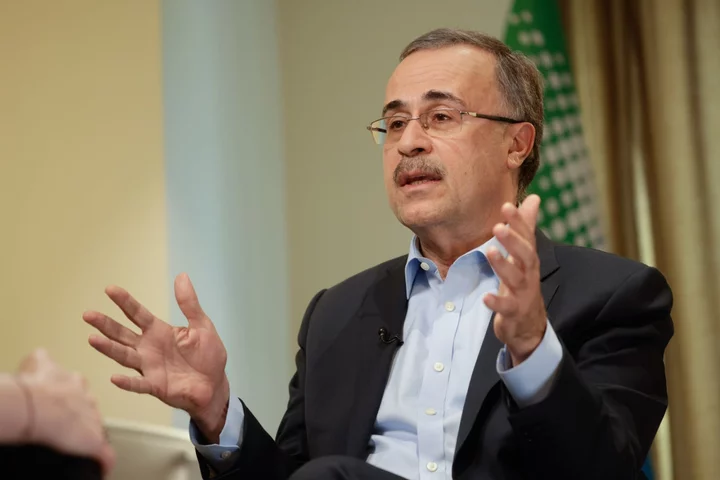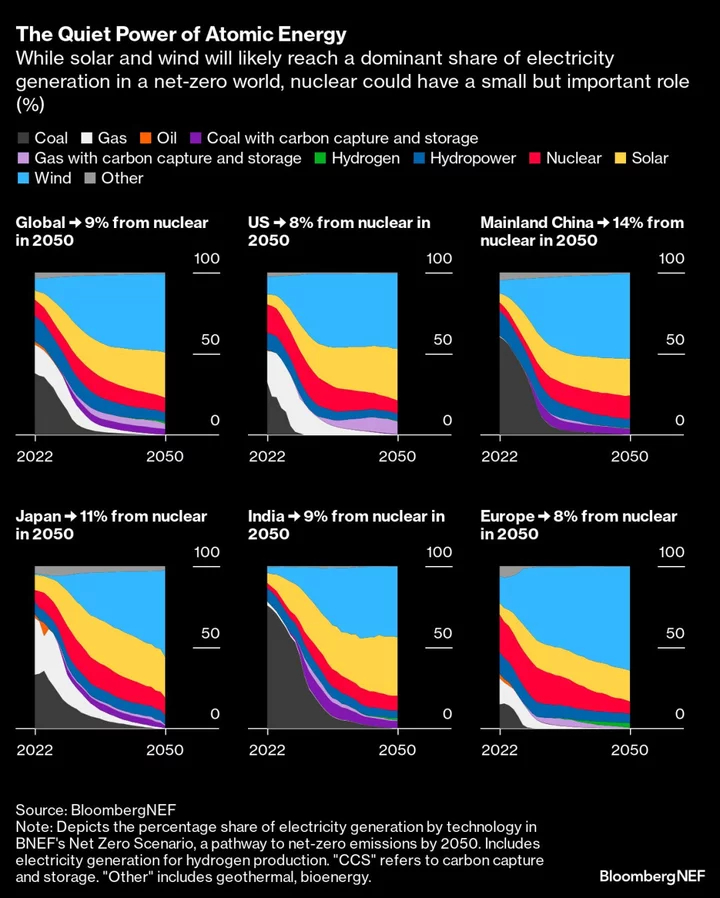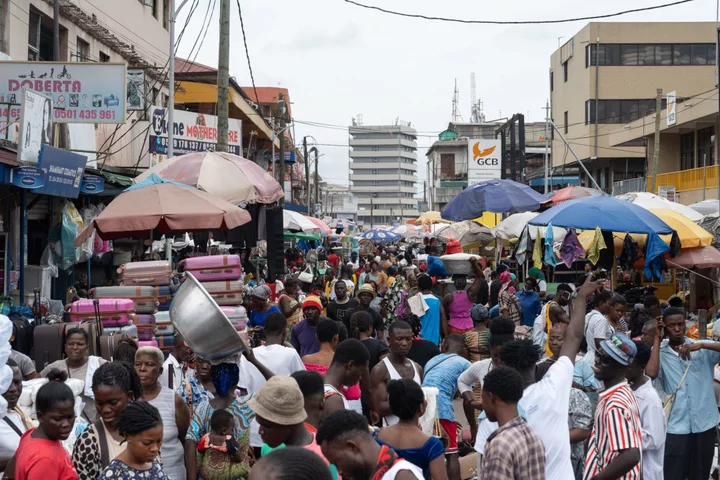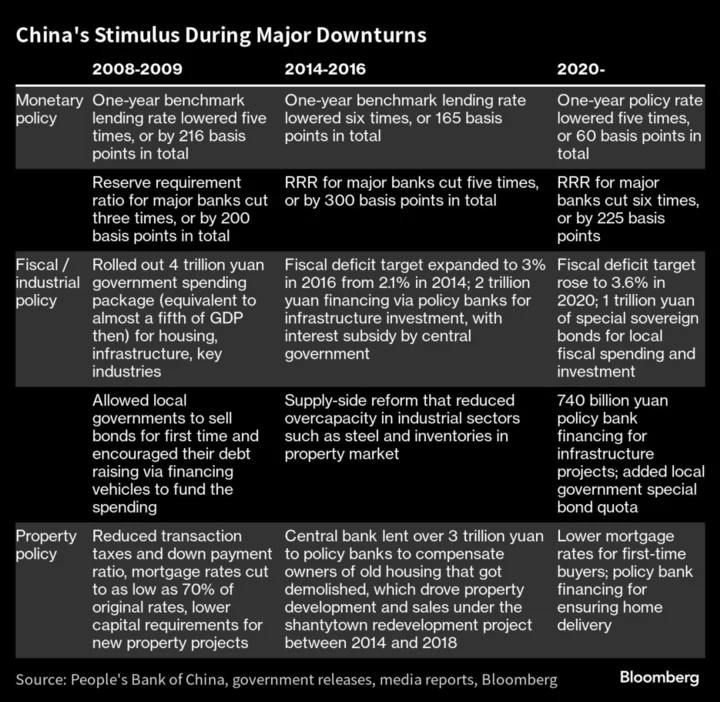Argentines begin casting ballots Sunday in a critical primary election that will provide a key barometer of expectations for the general vote two months later.
With markets anticipating a change of government in the October election, the key focus will be on how the business-friendly opposition party performs against the incumbent Peronist bloc, as well as the support for a third-party outsider candidate.
Economy Minister Sergio Massa faces an uphill bid to get his ruling government coalition reelected this year with inflation over 115% and a recession expected this year. He’s competing against the main opposition bloc that’s fielding two candidates, Buenos Aires Mayor Horacio Rodriguez Larreta and former security minister Patricia Bullrich — one of whom will advance as the sole contender for the Oct. 22 vote.
Investors will be comparing the total number of votes for Larreta and Bullrich combined against the tally for Massa’s coalition and outsider Javier Milei. While it’s possible Massa could receive more votes than any other individual candidate, markets have focused on the vote difference between the coalitions.
Read More: Argentina’s Primary Election Has Investors Flying Blind
A history of unreliable polling and apathy among voters have increased the uncertainty around election results. Four years ago, a similar primary ended in an unexpected defeat of the then-ruling pro-business opposition party. That triggered a collapse in Argentinian assets, including a 48% decline in dollar terms of the S&P Merval stock index that was the second-biggest one-day rout on any of the 94 stock exchanges tracked by Bloomberg going back to 1950.
Read More: Malbec, Coldplay, Qatar: A Guide to Argentina’s Myriad FX Rates
Polls are scheduled to end at 6 p.m. local time on Sunday, but it’s common for voting to be extended by an hour or two if people are waiting in long lines to cast ballots. Results will start to arrive after 9 p.m. Buenos Aires province, by far Argentina’s most populous and politically relevant, is often the last district to report results.
A significant victory for the opposition bloc — investors say 35% to 40% would be a strong performance — would be positive for the country’s sovereign bonds. However, if Milei or Massa perform better than expected, pulling within 5 percentage points of the opposition, uncertainty could roil markets on Monday.
Two violent murders in recent days, including the killing of an 11-year-old schoolgirl who was attacked for her mobile phone, may impact voter sentiment. The cases took place on the outskirts of Buenos Aires, a traditional bastion of the Peronist party, and forced campaigns to cancel their closing rallies ahead of Sunday’s vote.

